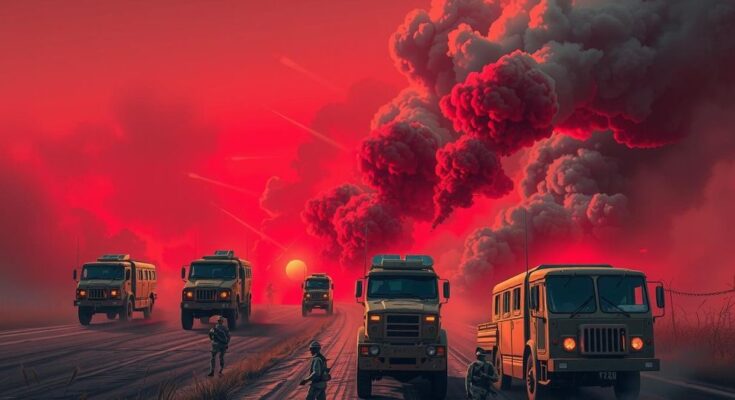Sudan’s ongoing conflict is primarily between the Sudanese Armed Forces under General Abdel Fattah al-Burhan and the Rapid Support Forces led by General Mohamed Hamdan Dagalo. As violence escalates and humanitarian crises deepen, both factions are engaged in a power struggle rooted in political transitions and military rivalry. International sanctions have been imposed on both leaders amid accusations of war crimes and atrocities.
The ongoing conflict in Sudan features two primary factions: the Sudanese Armed Forces (SAF) and the Rapid Support Forces (RSF). The latest developments saw the Sudanese army, led by General Abdel Fattah al-Burhan, claiming control over significant locations such as the Presidential Palace in Khartoum, amidst severe humanitarian repercussions including ethnic violence and displacements.
The SAF, which has a long-standing presence in Sudanese politics, began with an advantage due to superior troop numbers and military assets. General Burhan, having spent his career entwined within the military framework, played a crucial role in the ousting of former President Omar al-Bashir. This faction has faced accusations of indiscriminate civilian killings but has steadfastly denied such claims.
In contrast, the RSF is led by General Mohamed Hamdan Dagalo, known as Hemedti. Initially emerging from a militia background in Darfur, Hemedti’s forces have expanded significantly and are recognized as a potent military group. The RSF has been accused of carrying out ethnic violence, particularly in Darfur, which they deny. The international community has placed sanctions on both leaders due to their roles in the ongoing violence and humanitarian crisis.
Overall, the conflict underscores the deep-rooted instability in Sudan, driven by a power struggle between these two factions, with implications for the civilian population and regional security. Both groups continue to engage in devastating conflicts that exacerbate humanitarian conditions across the country.
The conflict in Sudan illustrates a complex struggle between the Sudanese Armed Forces and the Rapid Support Forces, with significant consequences for the civilian population. As both factions vie for power, the resulting violence has led to widespread atrocities, ethnic conflict, and displacement. The international community remains engaged, imposing sanctions in response to the actions of both leaders, yet the situation remains critical with no clear resolution in sight.
Original Source: www.hindustantimes.com




